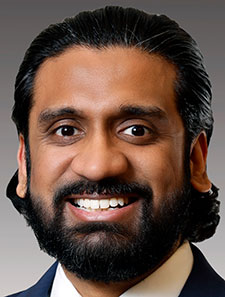Top 10 Articles of PHM Literature, 2024
Every year at the Pediatric Hospital Medicine (PHM) conference, the top 10 publications from the PHM literature are selected and presented. This year, we aimed to cover a variety of domains including community PHM, quality improvement, health equity, medical education, newborn hospital medicine, and general PHM. Our selection criteria were based on a previously published top 10 selection process which filtered articles based on the following four questions1:
Is it research?
Is it relevant to pediatrics?
Is it relevant to hospital medicine?
Is it potentially impactful and/or practice-changing
Using systematic review software,2 we broadly screened 11,589 abstracts from 21 journals from August 1, 2023, to July 1, 2024, screened 289 abstracts, and reviewed 124 full-text articles to select the final papers. The remaining top 10 were chosen by three-person agreement to cover the wide diversity of scholarship within the PHM field.
In this update, we summarize four of the top 10 articles in depth presented at the PHM 2024 conference in Minneapolis.
Discontinuation of car seat tolerance screening and post-discharge adverse outcomes in infants born preterm
Braun D, Kaempf JW, et al. J Pediatr. 2023;261:113577. doi:10.1016/j.jpeds.2023.113577
Background: Car seat tolerance tests were initially recommended by the American Academy of Pediatrics as a practical method for assessing safety in the transportation of preterm infants.3 However, the evidence behind this recommendation was at the time, and is currently, lacking. In the Kaiser Permanente Southern California system, car seat tests were discontinued in 2016. They aimed to measure the rate of adverse post-discharge events after this discontinuation.
Findings: This was a retrospective cohort study of 41,264 infants born at less than 37 weeks gestational age in the Kaiser system between January 2010 and December 2021. Their primary outcome measure was a composite score of deaths, 911-triggered transports, and hospital admissions for a brief resolved unexplained event, respiratory disorder, or apnea within 30 days of discharge. This included infants who were admitted to the neonatal intensive care unit (50% of them). The composite outcome was present in 1.04% of infants before the discontinuation of testing and 1.06% afterward (adjusted odds ratio=0.94 [0.72 to 1.22], P=0.63).
Practice implications: Car seat tests do not accomplish what we hoped. They do not pick up future clinically significant respiratory events, and therefore their routine use for preterm infants is questionable. Discontinuation of routine car-seat tolerance testing for preterm infants may also potentially decrease the length of stay.
Ultrasound-assisted lumbar punctures in children: an updated systematic review with meta-analysis
Cwiek A, Kolodziej M. Hosp Pediatr. 2024;14(3):209-215.
Background: Lumbar punctures (LPs) are a common procedure in the inpatient pediatric setting. Failure to obtain sufficient and atraumatic cerebrospinal fluid frequently results in diagnostic ambiguity and usually the need to reattempt the procedure.4 Point of care ultrasound (POCUS) provides an opportunity for greater accuracy in obtaining LPs.5 This review aimed to compare the success rate of standard methods of performing LPs with POCUS-assisted LPs.
Findings: This was a systematic review with meta-analysis of seven randomized controlled trials comparing standard versus POCUS-assisted LPs. Their primary outcome was the first-attempt success rate. Included studies took place in four different countries, with sample sizes ranging from 26 to 166, median age from 24 days to 8.5 years, and sonographer experience from medical students to attendings. The definition of successful LP differed among studies. The rates of first-attempt success, traumatic LP, and failure were as follows for POCUS-assisted versus standard: 72.0% versus 59.6%; 11.9% versus 22.7%; and 6.7% versus 14.9%, respectively. The mean time of procedure duration was similar.
Practice implications: POCUS-assisted LPs improve the first attempt success rate while also decreasing the rates of failure and traumatic procedures, without significantly increasing the duration of the procedure. The future incorporation of POCUS for LPs as the standard of care has the potential to limit pain and the need for repeat procedures in all pediatric patients.
Midline compared with peripheral intravenous catheters for therapy of four days or longer in pediatric patients: a randomized clinical trial
Kleidon TM, Gibson V, et al. JAMA Pediatr. 2023;177(11):1132-1140.
Background: Midline catheters (MC) are longer peripheral intravenous catheters (PIVC) that terminate in the axillary vein, never entering the thoracic cavity. In adults, MCs are shown to prevent the need for central catheters, reduce catheter-associated bloodstream infections, and have a longer dwell time and lower failure rate compared to PIVCs.6 In this study, a randomized clinical trial was performed to compare performance characteristics between MCs and PIVCs in pediatric patients.
Findings: A randomized clinical trial was performed at one hospital in Australia from July 2020 to May 2022. 127 patients (2 to 13 years of age) with a known need for at least four days of IV therapy were included, with 65 randomized to receive a PIVC and 62 to an MC. The primary outcome measured was all-cause device failure rate, defined as cessation of function prior to completion of the intravenous medication course. PIVCs failed 46.2% of the time compared to 16.1% in the MC group (odds ratio, 0.22; 95% confidence interval, 0.1 to 0.52; P <0.001). MCs were also associated with fewer insertion attempts, an increased dwell time, greater parent and patient satisfaction, and lower healthcare costs.
Practice implications: This article highlights the superiority of MCs compared to PIVCs in dwell time and failure rate. Although there continues to be more emerging evidence for shorter intravenous courses of antibiotics, there remains a need for sustainable access for medication administration and laboratory draws while patients remain in the hospital.7 MCs provide an opportunity to decrease resource utilization and limit pain and anxiety for patients while maintaining a safety profile that reduces the frequency of infections when compared to peripherally inserted central catheters.8
Pediatric utilization of methicillin-resistant staphylococcus aureus nasal swabs for antimicrobial stewardship
Braga S, Rajapakse N, et al. Pediatr Infect Dis J. 2023;42(12):e466-e469.
Background: With the increase in community prevalence of methicillin-resistant Staphylococcus aureus (MRSA), it is no longer enough to rely on risk factors when determining antibiotic coverage for both community and hospital-acquired infections.9 In adults, MRSA nasal swabs have shown a high negative predictive value (NPV) for MRSA pneumonia; however, this had previously not been studied in children.10 This study aimed to measure the performance characteristics of MRSA nasal swabs for pediatric infections.
Findings: In this single-center, retrospective, cohort study of 172 pediatric patients hospitalized for presumed infections, MRSA nasal swab cultures were obtained along with a culture of the infection site. MRSA positivity for nasal swabs and infection site cultures were both about 6%. The NPV for all infections was 95% (95% confidence interval, 90% to 98%) and was above 90% individually for skin and soft tissue infections, bone and joint infections, and lower respiratory tract infections.
Practice implications: MRSA nasal swabs have a high NPV for MRSA infections, particularly lower respiratory tract infections. A negative MRSA nasal swab can help inform the decision to de-escalate MRSA-specific antibiotics.
Remaining top-10 articles
Allan JM, Black E, et al. Gender communication differences on a pediatric provider listserv. Hosp Pediatr. 2024;14(7):514-519.
This qualitative study found that hospitalists perceived to identify as women contribute disproportionately fewer posts to the American Academy of Pediatrics Section on Hospital Medicine listserv than men. Overall, almost 10% of posts were coded as adversarial. The study provides an opportunity for improvement in reestablishing the listserv as a safe space.
Byrd C, Noelck M, et al. Multicenter quality collaborative to reduce overuse of high-flow nasal cannula in bronchiolitis. Pediatrics. 2024;153(5):e2023063509. doi: 10.1542/peds.2023-063509.
This multicenter quality improvement study provided toolkits for two methods in decreasing high-flow nasal cannula (HFNC) use: a pause before starting or an HFNC holiday, once initiated. The pause resulted in a relative reduction of HFNC use of 32% and the holiday method reduced its use by 28%, with no increase in length of stay or clinical deterioration events in either method.
Cahill C, Jegatheesan P, et al. Implementing higher phototherapy thresholds for jaundice in healthy infants 35 plus weeks. Hosp Pediatr. 2023;13(9):857-864.
This quality improvement study decreased the rate of phototherapy using higher thresholds for the light level. Balancing measures such as readmission rate and rate of infants reaching critical levels of bilirubin were unaffected.
Carozza RB, Mohanty D, et al. Paroxysmal sympathetic hyperactivity: development of a pediatric clinical practice guideline. Hosp Pediatr. 2023;13(12):e402-e410.
This is the first guideline published for the approach to paroxysmal sympathetic hyperactivity symptoms, suggesting a focus on nonpharmacologic approaches first and targeted pharmacotherapy to the patient’s predominant symptoms.
Carroll AR, Johnson JA, et al. Health literacy-informed communication to reduce discharge medication errors in hospitalized children: a randomized clinical trial. JAMA Netw Open. 2024;7(1):e2350969. doi: 10.1001/jamanetworkopen.2023.50969.
This randomized clinical trial compared standard medication administration counseling at discharge with a health-literacy-informed toolkit that improved medication administration errors by caregivers. The toolkit included pictograms, teach-back, and demonstration with show-back.
Mahoney D, Pavitt S, et al. We’ve got a new one exploring the resident-fellow new admission interaction and opportunities for enhancing motivation. Acad Pediatr. 2024;24(4):692-699.
In this qualitative study, resident and fellow focus groups described an optimal interaction surrounding the admission process that promoted intrinsic motivation and patient safety. Takeaways can be applied to other supervisor-learner relationships as well.

Dr. Yankova

Dr. Doraiswamy

Dr. Zwemer
Dr. Yankova is a second-year pediatric hospital medicine fellow at Yale Children’s Hospital in New Haven, Conn. Dr. Doraiswamy is a pediatric hospitalist, medicine hospitalist, and assistant professor at Nationwide Children’s Hospital and The Ohio State University Wexner Medical Center in Columbus, Ohio, associate program director for the med-peds residency program, and the director of the med-peds track for the PHM fellowship. Dr. Zwemer is a pediatric hospitalist and professor at the University of North Carolina (UNC) Children’s Hospital in Chapel Hill, N.C., and associate chair for faculty affairs in education and associate program director for the UNC pediatrics residency.
References
- McDaniel CE, Russell CJ. Top Articles in pediatric hospital medicine: July 2019 to June 2020. Hosp Pediatr. 2020;10(10):906-12.
- Veritas Health Innovation. The world’s #1 systematic review tool. Systematic review software. Covidence website. www.covidence.org. Accessed October 5, 2024.
- Safe transportation of premature and low birth weight infants. American Academy of Pediatrics. Committee on injury and poison prevention and committee on fetus and newborn. Pediatrics. 1996;97(5):758-60.
- Pingree EW, Kimia AA, et al. The effect of traumatic lumbar puncture on hospitalization rate for febrile infants 28 to 60 days of age. Acad Emerg Med. 2015;22(2):240-3. doi:10.1111/acem.12582
- Furness G, Reilly MP, et al. An evaluation of ultrasound imaging for identification of lumbar intervertebral level. Anaesthesia. 2002;57(3):277-80.
- Tripathi S, Kumar S, et al. The practice and complications of midline catheters: a systematic review. Crit Care Med. 2021;49(2):e140-e150.
- Schroeder AR, Ralston SL. Intravenous antibiotic durations for common bacterial infections in children: when is enough enough? J Hosp Med. 2014;9(9):604-9.
- Swaminathan L, Flanders S, et al. Safety and outcomes of midline catheters vs peripherally inserted central catheters for patients with short-term indications: a multicenter study. JAMA Intern Med. 2022;182(1):50-8.
- Hamdy RF, Hsu AJ, et al. Epidemiology of methicillin-resistant staphylococcus aureus bacteremia in children. Pediatrics. 2017;139(6) doi:10.1542/peds.2017-0183
- Dangerfield B, Chung A, et al. Predictive value of methicillin-resistant Staphylococcus aureus (MRSA) nasal swab PCR assay for MRSA pneumonia. Antimicrob Agents Chemother. 2014;58(2):859-64.